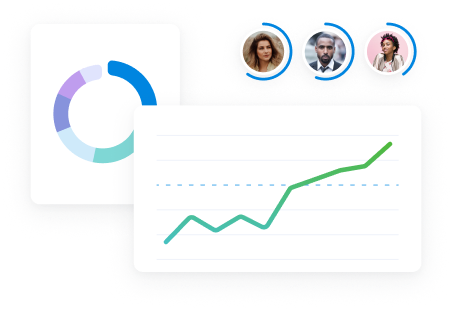Ever wondered what life is like in Scoro? Well, you’re in luck as we’ve decided to raise the curtain again and talk about daily life in Scoro. So far, we’ve spoken about our Sales and Client Services, aka SOS team. This time, we took a more technical path and had a chat with our VP of Engineering, Juan Gutiérrez Plaza.
Originally from Spain, Juan has lived abroad for quite some time and has been living in Estonia for over five years now. In Juan’s words, his love for computers goes back as far as he can remember. He’s worn many hats, from software engineer and agile coach to managerial positions. A curious mind and desire to learn and improve himself have led him into the role where he’s now, being responsible for the entire Engineering unit in Scoro. Juan’s colleagues describe him as one of the best managers you could wish for (and, for sure, he receives the most #kudos in the company).
1. You have an impressive career history in different companies and countries. How did you find your way to Scoro?
After working many years in big companies, I had the opportunity to experience the entrepreneurial atmosphere and energy while trying to build my own business. Although it didn’t work out as planned, I decided to continue my career in a start-up environment and joined Pipedrive as an Engineering Manager. Three years went by, and I got an offer from Scoro to become the VP of Engineering. With an offer like that, how could I resist?
Scoro appealed to me for several reasons. First off, Scoro’s a seasoned and well-established company that’s big enough (100+ people) to make an impact. It has an excellent and powerful product, good product vision, strong international business, and exciting challenges from a technical and organizational perspective. Also, I liked the unique culture around timing as the ultimate asset. Not to mention Scoro’s international, very strong, welcoming, and heart-warming team!

Throughout the recruiting process, I got to talk to many people from different teams and I was really blown away by how friendly, smart and professional the people were. In addition to that, the perks and benefits Scoro offers are awesome and definitely help in the decision-making process. – Karl Markus Jõgila, Server Infrastructure Engineer
2. Today, you’re responsible for the entire Engineering Department. How big is it, and how is the work organized?
The Engineering teams are in Tallinn and Riga, and there are about 40 people total. We have an international team, including people from Estonia, Latvia, Spain, Turkey, Nigeria, and Brazil. The division has three units: Software Engineering, Infrastructure and Development Operations, and Internal IT and Security.
The teams own different areas:
- Core Product (main Scoro functionality around work and time management, and sales and finance)
- Ecosystem (dealing with everything around the Core Product such as integrations, API, automation, etc.)
- Conversion (responsible for the customer life cycle: acquisition, conversion, engagement, activation, etc.)

Working in Scoro is like hanging out with good friends. We know how to have fun and, at the same time, deliver world-class software to our clients. In QA, we focus on the quality of our product but also make sure that everyone else around us does the same. – Liis Pass, Global Lead QA
All those teams are very independent and include roles like software engineers, product managers, designers, QA, etc. Our teams are bigger than usual and use a non-standard setup (compared to the industry-standard Scrum like set-ups) that we called Bases and Missions, inspired by the Pipedrive framework. In short, we are constantly re-teaming inside the bases as people move between time-bound missions with a very focused and clear objective or stay in Launchpad working on maintenance and small improvements. Having a stable entity (the base) is important as that provides structure, stability, and a sense of belonging. Having dynamic entities (the missions and launchpads) is important because they bring a lot of flexibility and adaptability while keeping some focus and highlighting the need for knowledge sharing.
“Having a true partnership with the product department is the key – we see each other as different sides of the same coin.”
3. You mentioned previously that exciting technical challenges were one reason Scoro attracted you initially. Can you name your leading technologies and highlight some of the challenges your team currently faces?
Our primary technology is PHP, MariaDB, VueJS, and GraphQL, and all our infrastructure is in AWS. We are currently modernizing how our software is structured as we are scaling up. That means moving towards a hybrid architecture with a smaller core PHP modular monolith, surrounded by non-core services in PHP, NodeJS, or Go.
At the moment, we are releasing monthly. The more services we have, the more often we will release. Our vision is to reach a “versionless continuously deployed Scoro”. Additionally, we need to find the best way to do it steadily while still solving customer issues, providing new and exciting functionality, and improving current ones. This cannot be done within a few months, it’s a long-term vision and journey, and that’s also part of the challenge. I find it very exciting!
“We strongly believe in experimentation as a way of learning. In experimentation, failures are embedded, and that’s fine, as long as we fail in a controlled environment and learn from it.”
4. Let’s talk about people! How do you motivate and develop your team?
We believe in intrinsic motivators rather than extrinsic ones. Money is important, but reaching a certain level won’t keep people motivated or loyal to the company. I admire Daniel D. Pink’s principles that declare autonomy, mastery and purpose as the main motivating factors.
We do a lot to push those forward; for example, we have
- Very high flexibility at work
- Internal and external trainings, monthly knowledge sharing sessions by external speakers, training wallet (without the need of manager approval)
- Mission selection
- Focus minded environment
- Different career path choices
Recently we introduced a new career path structure, which includes specific career path choices for all the domains (software development, QA, etc.). Seniority levels are defined by pillars (technical, leadership, team, people and communication). Each pillar has its own areas (like design and architecture, security, ownership, etc.). Seniority is then defined by different levels in those areas. The aim is to create a career system that considers people’s strength areas and creates clarity about vertical and horizontal growth opportunities and the steps they need to take.

It's really an outstanding group of people who are excellent at what they do and keep a big smile on their faces, making them feel more like friends rather than colleagues. The opportunity to be around them, learn, grow and have fun in between is bigger than any Christmas bonus. – Edmunds Pūce, Software Engineer
5. What are the key competencies you’re looking for in a candidate?
Being good in the technical area is obvious, so I will not go deeper. However, I consider equally critical (or even more at times) the non-technical competencies, such as:
- Adaptability. Change is the only constant we have. We need to keep ourselves open to new things, learn and relearn, adapt to changes and be flexible.
- Ownership. I believe in people making their own choices and taking action. You do not need approval for everything. If you see a problem, you have to make it your own and fix or improve it.
- Being humble and open. Listening, having an open mind, and respecting other points of view. I value people who can explain things without arrogance and treat everybody equally.
- Having some business acumen. People should understand that making software is not only about writing code. We do it to solve somebody’s problems, and the ability to see things from a customer’s point of view is essential. The goal is always to find the best solution from a product and technical perspective.
“It’s not only about being technical savvy, but genuinely understanding that we create value for customers.”
6. Why do you consider Scoro to be an attractive place for talented people?
We are in an exciting phase right now. We’re constantly adapting and reinventing ourselves as we grow, without forgetting our unique start-up culture. This creates many thrilling challenges from a technical and organizational perspective and a lot (I really mean a lot) of growth opportunities. Joining Scoro now will mean you will participate in that, not as a follower but as an active participant. You will take part in those decisions and significantly impact how the company adapts and improves.
“Our motto is ‘We make dreams come true’. We make real things happen – dreams, desires, and even unknown needs from customers that we transform into a reality.”
If you would like to join Scoro’s Engineering team, check our Careers Page. Currently, we are looking for Software Engineers, DevOps Engineers, and Technical Support Engineers. If you cannot find a suitable role, send us your application and we will contact you to discuss what could be a match now or in the future.




